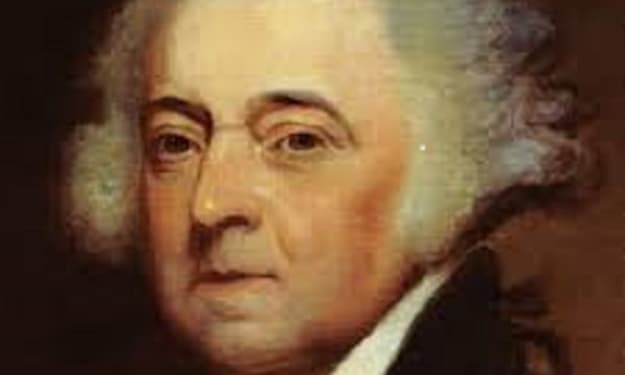Keep Your Pants On
Rank Has Its Privileges

One privilege of rank is getting to keep your pants on.
American Major General Mark Clark was on a top-secret mission in North Africa in 1942. A British submarine had brought him and several other Allied officers to meet with the commander of the French army in Algiers. Clark was there to persuade General Charles Mast, the French commander, not to resist the planned American invasion of North Africa, codenamed Operation Torch. French forces had been under German authority since the Nazis had invaded France two years earlier, so it wasn’t clear whose side they would be on. The officers met in an isolated villa on the coast, and General Mast agreed to Clark’s plan. If Mast’s cooperation was found out by the Germans, he would have been executed for treason.
The Allied officers had to hide in the basement when French police approached and questioned the owner of the villa. If the officers were captured, the French would have turned them over to the Germans. General Clark waited at the bottom of the basement stairs with a loaded gun. “If we fell into Nazi hands,” Clark later said, “it would be far from pleasant, and, of more importance, it would jeopardize the whole operation.”
Sounds like he had his priorities straight.
The owner of the villa managed to convince the French police that there was a party going on involving several high-ranking diplomats and a number of low-ranking women. (This seemed like something Frenchmen could understand, and might cause them to look the other way). The police left, and the Allied officers were safe.
For the moment.
Mark Clark had risen rapidly through the ranks at the start of World War II, skipping over officers of higher rank and seniority. He had a reputation as a publicity hound, insisting that photos of him only be taken from the left side, and that every news release had to mention his name three times on the first page and at least one time on the rest. General Omar Bradley said that Clark seemed “too eager to impress, too hungry for the limelight, promotions, and personal publicity.” General George S. Patton said about him, “if you treat a skunk nicely, he will not piss on you—as often.”
But Clark had two devoted fans at just the right time: Army Chief of Staff George Marshall and General Dwight Eisenhower, Clark’s West Point barracks-mate. It was Clark who recommended Eisenhower for overall command after Pearl Harbor. He had been asked by Marshall for the names of ten brigadier generals who were capable of being Chief of War Planning. Clark said, “I’ll give you one name and nine dittos, Dwight D. Eisenhower.”
Eisenhower, who later told Clark that he was “more responsible than anybody in this country for giving me my opportunity,” eventually brought Clark in as Deputy Commander in Chief of American forces in Europe. Clark had to give up a combat command to take the job, which Eisenhower put to him as he said, “whether I wanted that job or whether I wanted to sit on a dead fish.”
Dwight Eisenhower, master of unappetizing choices. Clark took the job.
He immediately dove into the planning for Operation Torch, which was an idea close to the hearts of both Winston Churchill and Franklin Roosevelt. It called for a multi-pronged invasion of North Africa by British and American troops, with massive naval support. It was an operation that envisioned the future D-Day landing in France in 1944.
American involvement in the Second World War up to that point had been focused on Japan and the Far East. The United States had fallen into isolationism after the First World War. After the Nazis took Poland and most of Eastern Europe at the outset of World War II, President Roosevelt had to jump through hoops to support the Allied war effort over the objections of isolationists in Congress. The attack on Pearl Harbor could not be ignored, but most Americans saw their response aimed at Japan, not Europe.
Early action in the Pacific did not go the Americans’ way. The Japanese took Manila and Bataan, forcing the biggest surrender of American forces since the Civil War. The subsequent Bataan Death March, in which 15,000 American and 60,000 Filipino prisoners were force-marched 70 miles, resulting in as many as 10,000 deaths, was so horrific that the U.S. government didn’t inform the public about it for two years. Douglas MacArthur, commander of American forces in the Far East, escaped to Australia, vowing that he would return. Burma fell to the Japanese in what was called “a military catastrophe.” Japanese forces invaded the Aleutian Islands, the first invasion on American soil in 128 years. Allied losses continued across all fronts. The British lost Tobruk in North Africa, giving the Axis a free hand in Egypt. Guadalcanal fell to the Japanese. The Soviet Army was in retreat as the Germans advanced toward Stalingrad.
General Eisenhower arrived in London to take command of American forces in Europe in June. He knew, as did Winston Churchill and Franklin Roosevelt, that the Allies needed a big win, and soon. North Africa seemed like the best option.
Aside from the uncertainty of the military aspects of the invasion, there were questions about how the French and Spanish would respond, the French being under German control. Spain, despite its declared neutrality, was getting pretty cozy with Adolf Hitler. It was safer to assume that both would land on the side of the Germans. With both the British Prime Minister and the American President involved in the planning, politics and intrigue played a larger-than-usual role, and the plans changed every time Roosevelt and Churchill talked about them. At one point Roosevelt sent a letter to the American ambassador in France indicating the Americans were going to land in North Africa. Clark was horrified when the ambassador told him about it, and the letter was never delivered.
General Clark went on a secret trip back to the United States to clarify the details of Operation Torch to the American high command, and to try and separate the political from the military aspects of the invasion. He believed that all the political interference was getting in the way, as Roosevelt and Churchill argued over the level of involvement of their forces and quibbled over who would command, not to mention the calculations regarding France and Spain. Clark said, “it is not a military man’s job to say whether the French will resist or whether Spain will enter the war. The political factors should be handled by politicians.”
Way to scold the President and Prime Minister, General.
His trip was a success, and the plans were finalized.
Upon his return to Europe and Eisenhower’s headquarters, Clark had nothing to do but sit and wait. He kept pressuring Eisenhower to return him to a field command, which was met with the reply, “Now just keep your shirt on.”
As it turned out, Eisenhower should have advised Clark about his pants as well.
Clark’s boredom ended when he received a “red hot” communication from the French high command in North Africa, asking for a senior general officer to meet secretly with French officials to enlist their support for the invasion, or at least their non-involvement. Not only was Clark the most knowledgeable officer about the Torch plan, he was itching to get out from behind his desk and see some action. Before he left, Winston Churchill took Clark aside and told him, “We’ll back you up in whatever you do.”
The general wrote a note to his wife before leaving that said, “If I succeed and return I will have done a fine deed for my country and the Allied cause…I go forward proud of the opportunity that has been given me.” He arrived in Gibraltar on October 19, 1942 to board the British submarine Seraph with General Lyman Lemnitzer, head of Allied Force Plans, Colonel A.L. Hamblen, Navy Captain Jerauld Wright, and Colonel Julius Holmes, a State Department liason, and three British commandos. Clark and his fellow officers were trained in the use of foldable kayaks – “folbots” - that they would use to get to shore from the sub and back. The hardest part was using them without getting wet, but they managed. The American general had never been aboard a submarine before, and found conditions unsuited for a “lanky, six-foot-two man.” He spent the trip hunched over in the close quarters, and had to get on all fours to use the latrine. The stale air when the boat was submerged affected the novices pretty badly.
Once they reached their destination, the men on Clark’s team wanted to go ashore in civilian clothes, which Clark vetoed: “We’ll go ashore as American officers and nothing else,” he said. “We mustn’t allow them to forget that we are American and that there are millions more Americans behind us.” The British commandos going ashore with them probably opted for judicious silence. The men went in uniform. General Clark accessorized with a money belt containing two thousand dollars in gold, in case bribes were needed.
The meeting with French General Mast went well, although Clark had to keep most of the details of the landing from him. He wanted the French to trust him, but could not give them the specifics of the operation, as they were still technically under German rule. As Clark later wrote, he began “lying like hell.”
He also gave Mast a document from Churchill and Roosevelt promising to restore France to her prewar boundaries, allow the French self-government, and treat them as an equal ally in the war. They also agreed to allow General Giraud to be overall commander of the French in North Africa. (When he arrived, Giraud demanded to be Supreme Allied Commander of the entire operation. Whoops).
As night fell, their hosts told them that French police were on their way, alerted by the villa’s servants about “queer goings on” in the house. The Allied officers absconded to the wine cellar while salacious excuses were made. The police were there looking for black market smugglers, not Allied officers on a secret mission. Informed that there was a party going on and sleeping women upstairs, the police retreated with discretion.
The men waited till four in the morning to attempt a return to the submarine in rough seas. Soaking wet from trying to balance in the foldable kayaks, Clark was worried that the gold and his wet pants would drag him down. He ordered General Lemnitzer to drop his pants and give them to him. Lemnitzer ordered Colonel Hamblen to give up his pants. This went on down the ranks to a Lieutenant Foote, who outranked no one, and had to paddle back to the submarine in his underwear. Along the way, the kayak containing Clark’s pants, the gold and some top-secret documents was lost.
Clark sent word back to the villa asking his hosts to search the beach for his pants, the gold, and the documents. His wet trousers and the papers were recovered. The gold, oddly enough, was missing.
The men returned to Allied headquarters, where Clark received a telegram from British command in Gibraltar that said: “Inform Clark that he has not lost his pants nor his coat in Africa. But he will find them here clean and pressed on his return.”
A few days after getting back to headquarters, General Clark met with King George VI, who asked him, “Didn’t you get stranded on the beach without your pants?” The Amalgamated Clothing Workers of America wrote Mrs. Clark asking for her husband’s measurements, telling her that “he lost his trousers honorably. He is a living example of the fact that a great hero need not lose his dignity thereby.”
Lieutenant Foote, who actually lost his pants (and perhaps some of his dignity), was not mentioned.
Operation Torch was a success.
About the Creator
Stacey Roberts
Stacey Roberts is an author and history nerd who delights in the stories we never learned about in school. He is the author of the Trailer Trash With a Girl's Name series of books and the creator of the History's Trainwrecks podcast.






Comments
There are no comments for this story
Be the first to respond and start the conversation.